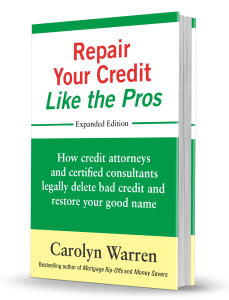This is a common question, and the number of accounts you have (along with their balances) has a major effect on your credit score. So let’s dive in.
You want to have at least two major accounts on your credit report. Major accounts in order of greatest to least are:
1) A mortgage
2) An installment loan, such as a car loan or student loan, with a set payment amount and set end date.
3) A major credit card, one that can be used at any type of establishment, such as Visa, MasterCard, Discover, AmEx.
Individual store cards such as Home Depot, Macy’s, and Chevron are not major credit cards. If you have two major credit cards and one store or gas card, that is enough to achieve a top tier score of over 720.
If you don’t have a mortgage or an installment loan, you can have two major credit cards and achieve top credit. You don’t need to run out and buy an automobile under the excuse of building credit!
The ideal mix of credit is to have a major account (see list above) plus a couple of major credit cards with possibly a store card/gas card added to the mix. That is a nice mix.
A total of three to five accounts is sufficient to achieve a top tier credit score and qualify for the lowest interest rate and best financing. You don’t need 10 cards, and I personally do not recommend having that many for several reasons.
There are people with 10 open accounts that have top credit scores, but they are not in the majority — according to my 23 years of seeing thousands of credit reports.
You do not earn bragging rights by having a wallet overstuffed with every credit card out there. I don’t recommend it.
Building a positive portfolio is not a license for overspending.
Repair Your Credit Like the Pros DEEPER DIVE, Carolyn Warren
Many people who carry a lot of open credit have mid-to-poor scores, because they are carrying too much debt. Their debt-to-income ratios are over 50 percent, which docks their scores.
Having a stack of credit cards means more monitoring and juggling. Most credit cards will automatically shut down if you don’t use them for a time period specified by their own rules.
Credit is to be used as a convenience and to build a good reputation in the financial community. It is not so you can collect cards like they’re comic books. It is not so you can buy more stuff that you truly don’t need. It is not so that you can live off your cards while you sink deeper in debt.
Credit is a hot topic, and I welcome your comments. This blog requires me to approve all comments to keep out the spam bots, but I promise that I do read all and approve them same-day.





 credit tips with you.
credit tips with you. in thatch and mud homes barely large enough to shelter a sleeping family. They cook by fire and farm by oxen. They gather sticks and carry 50-lb stacks on their backs to sell at market in order to survive. In this place, something wonderful has happened.
in thatch and mud homes barely large enough to shelter a sleeping family. They cook by fire and farm by oxen. They gather sticks and carry 50-lb stacks on their backs to sell at market in order to survive. In this place, something wonderful has happened. To build a church, they need land. A prominent Ethiopian, an Influencer, has come to salvation—and he brought his family of 24 into the faith with him. This man has donated land for the purpose of a church. The problem is, there are no funds to build a church nor means to earn funds. How much does a church cost?
To build a church, they need land. A prominent Ethiopian, an Influencer, has come to salvation—and he brought his family of 24 into the faith with him. This man has donated land for the purpose of a church. The problem is, there are no funds to build a church nor means to earn funds. How much does a church cost? The shocking results of a customer service survey showed that people with low credit scores receive more disrespect and bad service than people with high scores.
The shocking results of a customer service survey showed that people with low credit scores receive more disrespect and bad service than people with high scores. get the Expanded Edition, not a used copy of an old version of the book. That way, you’ll get all the newest info and all the letters that accompany it.
get the Expanded Edition, not a used copy of an old version of the book. That way, you’ll get all the newest info and all the letters that accompany it.


 “terminal delinquency.” At that point, the creditor may charge it off and try to collect money via their own bad debt department, or they can sell the account to a collection agency.
“terminal delinquency.” At that point, the creditor may charge it off and try to collect money via their own bad debt department, or they can sell the account to a collection agency.
 Build and Protect Your Credit Like the Pros guides you to achieving A+ credit in the shortest time possible.
Build and Protect Your Credit Like the Pros guides you to achieving A+ credit in the shortest time possible.